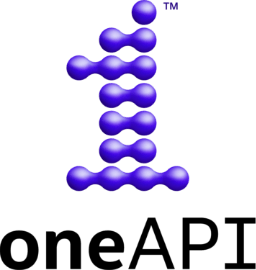
Collaboration Encouraged
The oneAPI initiative encourages collaboration on the specification and compatible oneAPI implementations across the ecosystem.

Spec Elements
This Spec is made of 7 core elements.
Component Releases
Individual components of oneAPI may also release specifications. See Releases for detailed information about all releases.
About the Specification
The specification includes 7 core elements of oneAPI. This includes:
- oneDPL: A companion to the DPC++ Compiler for programming oneAPI devices with APIs from C++ standard library, Parallel STL, and extensions
- oneDNN: High-performance implementations of primitives for deep learning frameworks
- oneCCL: Communication primitives for scaling deep learning frameworks across multiple devices
- Level Zero: A system interface for oneAPI languages and libraries
- oneDAL: Algorithms for accelerated data science
- oneTBB: A library for adding thread-based parallelism to complex applications on multiprocessors
- oneMKL: High-performance math routines for science, engineering, and financial applications
Each element is developed by a core team with feedback from the community. This is described in more detail in our governance doc. The sources for the document are in GitHub, and we also publish a road map. If you want to be involved in the development of the specification, submit a GitHub issue or pull request.
oneAPI 1.3
oneAPI 1.3 Specification was released on September 14, 2023, and is available online.
oneAPI 1.2
oneAPI 1.2 was released on November 10, 2022, and is available online.
- oneAPI Deep Neural Network Library (oneDNN): A graph API has been added to oneDNN, which compiles and executes a deep learning computation graph, identifying opportunities for fusing operators and other target-specific optimizations, working closely with industry partners who develop the major frameworks.READ MORE
oneAPI 1.1
oneAPI 1.1 was released on November 11, 2021, and is available online.
- Level Zero: Level Zero serves as a foundational layer for supporting oneAPI as it provides a direct-to-metal interface to offload accelerator devices. Level Zero 1.1 provides several new extensions as well as spec clarifications.READ MORE






